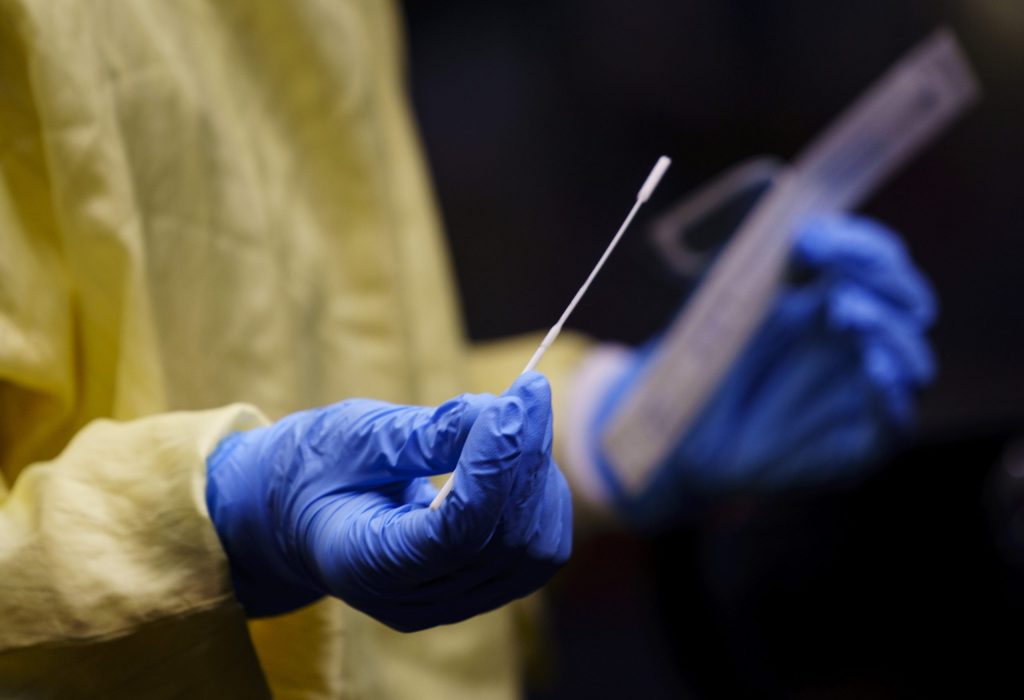More cases of COVID-19 variant in Canada likely, no reason to panic: expert

Posted December 26, 2020 4:14 pm.
VANCOUVER (NEWS 1130) — An infectious diseases expert says finding cases of a new COVID-19 variant in Canada was predictable, and there’s currently no reason to panic.
After two people in Ontario tested positive for a strain of the virus that has been spreading quickly in the UK, Dr. Isaac Bogoch says it’s important to remember that the science on how rapidly it can spread is far from settled.
“It’s actually not entirely clear to what extent it is more transmissible,” he notes, adding it hasn’t been conclusively proven that it is 70 per cent more infectious.
“I think most of the data to date demonstrates that it’s not more severe, it doesn’t cause a more severe illness compared to other variants of COVID-19. It’s important to note that many people in virology don’t believe that this variant will impact vaccine efficacy.”
He says measures like hand-washing, masks, and physical distancing remain key tools for stopping the spread of this variant.
“That doesn’t mean you shouldn’t be careful about it, that doesn’t mean that we still shouldn’t seek to address this, and answer these questions but I don’t think that it changes anything that we do at an individual level, we’re still going to adhere to the same fundamental public health principles that we should be adhering to.”
RELATED STORIES:
-
B.C.’s COVID-19 curve levelling, virus variant requires caution: top doctor
-
COVID-19 vaccine maker believes shot will work on new virus variant
-
Canada extends ban on U.K. flights until Jan. 6
He predicts more cases will be found with more testing.
“This is probably a scenario where the more you look, the more you’re going to find it,” he explains.
Flights into Canada from the United Kingdom have been halted until at least Jan. 6, but Bogoch says that ban came months after the virus began circulating.
“We know this variant, for example, has been circulating in the United Kingdom since as early as September, and we know there’s been a lot of global travel since that time especially global travel to and from the United Kingdom,” he says.
“That global travel is still a drop in the bucket compared to pre-COVID-19 times, it’s clearly not nothing and there still has been a significant amount of travel. I think it’s fair to say if the appropriate tests are done, there will be more and more of this genetic variant found probably in many parts of the world.”
Because the two people who tested positive had not recently returned from the UK, he says contact-tracing will be key.
“It’s also really interesting to note that those two cases had not travelled, and it will be very interesting to see in the days ahead what their contact patterns were, to see who they were possibly exposed to, how they acquired this infection, and the travel history of those who they acquired the infection from,” he says.
The Quarantine Act requires anyone entering Canada to isolate for 14 days, which Bogoch says puts the country in a relatively good position to contain cases acquired abroad.
“Of course it’s not perfect, but it’s still pretty good. That likely shields us, perhaps more than other countries that have had travel to and from the United Kingdom.”



